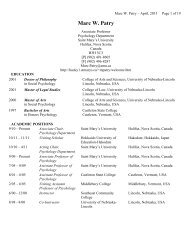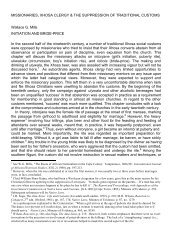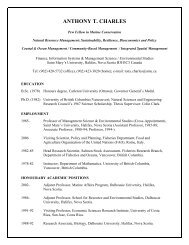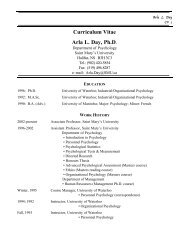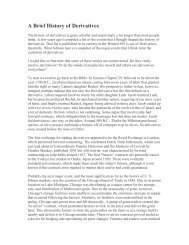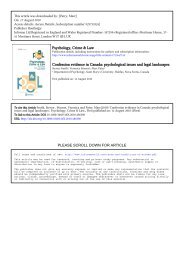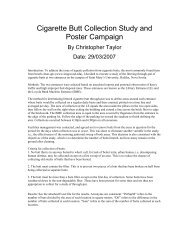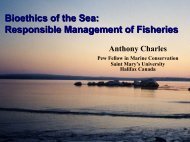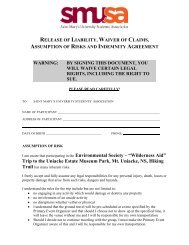Social, Economic and Cultural Overview and Assessment for Ocean ...
Social, Economic and Cultural Overview and Assessment for Ocean ...
Social, Economic and Cultural Overview and Assessment for Ocean ...
You also want an ePaper? Increase the reach of your titles
YUMPU automatically turns print PDFs into web optimized ePapers that Google loves.
analysis. Ideally the assessment team will reflect this range. If there are no team members<br />
to cover all these disciplines, it does not mean that the socioeconomic assessment cannot<br />
be carried out, but the team should be aware of these limitations <strong>and</strong> try to address them<br />
throughout the assessment.<br />
• It is highly recommended that the SECOA team receive guidance <strong>and</strong> training. This is<br />
particularly critical when managers <strong>and</strong> team members may not feel com<strong>for</strong>table with the<br />
processes described, do not feel they have the background <strong>and</strong> capacity to fully<br />
underst<strong>and</strong> the methods <strong>and</strong> processes, <strong>and</strong>/or are unfamiliar with procedures <strong>for</strong><br />
updating the community on the results of the studies.<br />
5.0 Conclusions<br />
As coastal <strong>and</strong> ocean management continues to be developed worldwide, there is an increasing<br />
need to underst<strong>and</strong> both the ecological <strong>and</strong> the human context of such management initiatives.<br />
Specifically, in ocean areas designated <strong>for</strong> management, it is crucial to assess the various social,<br />
economic <strong>and</strong> cultural aspects that <strong>for</strong>m the baseline within which management is to proceed. To<br />
that end, the present report has developed <strong>and</strong> implemented a new approach to enable systematic<br />
examination of overview <strong>and</strong> assessment studies relating to the human dimensions of ocean<br />
management areas, particularly at the scale of a Canadian ‘large ocean management area’<br />
(LOMA). The aim is to better underst<strong>and</strong> what has been <strong>and</strong> is currently being done worldwide,<br />
<strong>and</strong> ultimately to use this knowledge to initiate ‘best practices’ in a Canadian context.<br />
As there has been little work carried out to date in examining the human dimensions at a LOMA<br />
scale, Canada can potentially play an important pioneering role. This includes the responsibility<br />
to disseminate the results, <strong>and</strong> particularly the lessons learned, widely enough that the LOMAs<br />
can learn from one another, <strong>and</strong> that these experiences can be shared with other countries, to<br />
foster learning on a national <strong>and</strong> global scale, <strong>and</strong> strengthen the various international networks<br />
that are seeking improved management of the various human uses of the world’s oceans.<br />
29



